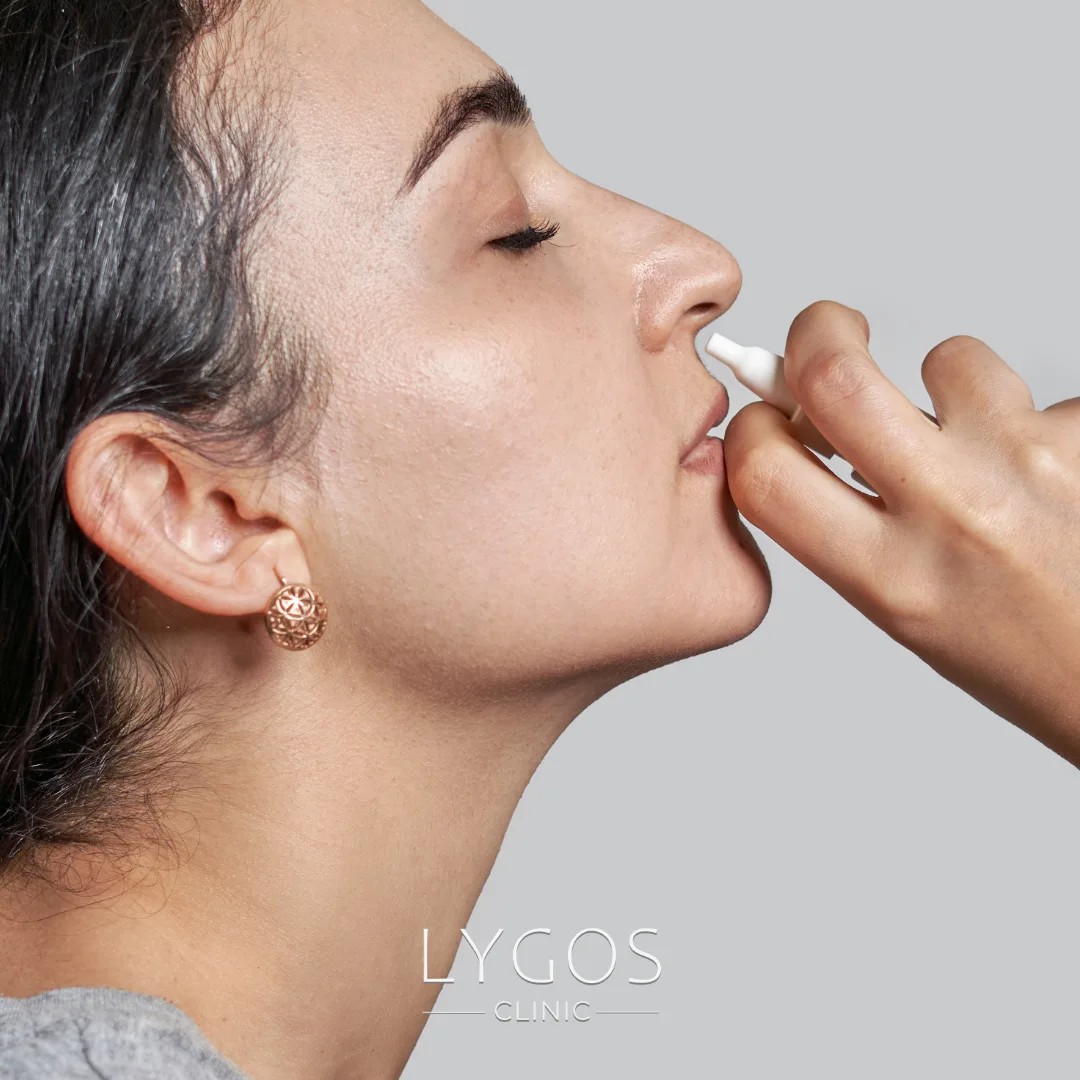Do Nasal Sprays Cause Addiction

Chose Your Topic
Do Nasal Sprays Cause Addiction?
Nasal congestion is a problem that can significantly reduce quality of life. One of the most commonly used methods to alleviate this issue is nasal sprays. However, many people wonder: Do nasal sprays cause addiction? In this article, we’ll provide comprehensive information on what nasal sprays are, when they are used, their relationship with addiction, and more.

What Is a Nasal Spray and How Is It Used?
A nasal spray is a form of medication applied inside the nose to relieve nasal congestion. It is commonly used to reduce symptoms associated with upper respiratory tract infections such as colds, flu, allergies, or sinusitis. Nasal sprays are available both over the counter and by prescription, and they come in various types, including:
- Decongestant nasal sprays
- Saline (saltwater) sprays
- Steroid nasal sprays
The method of use varies depending on the type of spray. Typically, they are applied by spraying one or two doses into each nostril 2-3 times a day. However, one important factor to note is the risk of prolonged use—which leads us back to the common question: Do nasal sprays cause addiction?

When Are Nasal Sprays Prescribed?
Doctors usually prescribe nasal sprays for the following conditions:
- Seasonal allergies (allergic rhinitis)
- Chronic sinusitis
- Nasal congestion due to the common cold
- Enlarged nasal turbinates
- Post-operative healing after nasal surgery
Nasal sprays work quickly. They open up blocked nasal passages, allowing easier breathing. However, this fast relief may tempt users to use them continually—raising once again the question: Can you become addicted to nasal sprays?
What Is Nasal Spray Addiction?
Nasal spray addiction refers to the dependency that can develop particularly from prolonged and uncontrolled use of decongestant nasal sprays. These sprays should not be used for more than 5 to 7 days. However, some users continue using them because they feel congested again once the effect wears off. This cycle can lead to addiction over time.
So, the answer to the question “Do nasal sprays cause addiction?” is yes, especially if misused. The nose develops a tolerance to the medication, and congestion becomes worse when the spray is not used. This condition is called “rebound congestion.”
Symptoms of Nasal Spray Addiction
Nasal spray addiction is more psychological than physical. Users may feel like they cannot breathe without the spray. Common symptoms include:
- Daily and regular use of nasal sprays
- Inability to sleep without using the spray
- Persistent nasal congestion despite using the spray
- Irritation, burning sensation, or dryness in the nose
- Worsening of nasal blockage over time
- Carrying a nasal spray everywhere you go
If you recognize these signs and still wonder if nasal sprays are addictive, the answer is most likely yes.
How to Overcome Nasal Spray Addiction
It is possible to overcome nasal spray addiction, but the process requires patience and consistency. Here are some effective methods:
- Tapering Off : Gradually reduce the dose and frequency of the spray instead of stopping suddenly.
- Using the Spray in One Nostril Only: Initially use the spray in just one nostril, allowing the other to recover and break the cycle of dependency.
- Switch to Saline Sprays: Replace decongestant sprays with saline-based sprays, which keep the nasal passages moist and do not cause addiction.
- Seek Professional Help: An ENT (Ear, Nose, Throat) specialist or an allergist can offer alternative treatments for nasal congestion.
- Doctor-Prescribed Steroid Sprays: In some cases, doctors may recommend steroid-based sprays to reduce inflammation. These should only be used under medical supervision.
Remember: Can nasal sprays cause addiction? Yes—but it is a risk that can be completely avoided with proper use and awareness.

Natural Remedies for Nasal Congestion
Instead of relying solely on nasal sprays, consider natural and supportive methods to ease nasal congestion:
- Steam inhalation: Hot steam can open nasal passages.
- Nasal irrigation with saline: A practical and effective home method.
- Drink plenty of fluids: Staying hydrated helps thin mucus.
- Use a humidifier: Especially useful in dry indoor environments.
- Elevate your head while sleeping: Helps keep nasal airways open.
- Herbal remedies: Teas or steam with ginger, mint, or eucalyptus may offer relief.
Using these natural methods can reduce the risk of nasal spray addiction. Because now we know: Do nasal sprays cause addiction? Yes, and it should be taken seriously.
Prolonged and uncontrolled use of decongestant nasal sprays can lead to addiction, potentially causing both psychological and physical discomfort over time. Although nasal sprays provide short-term relief, unconscious use can result in long-term problems.
Let’s ask one final time: Do nasal sprays cause addiction? Yes—but this risk can be entirely prevented with responsible use.
Do Nasal Sprays Cause Addiction? Frequently Asked Questions (FAQ)
Yes, especially decongestant nasal sprays, if used for extended periods without guidance, can cause dependency and worsen nasal congestion.
Decongestant sprays that contain active ingredients like oxymetazoline or xylometazoline have the potential for addiction.
No. Saline (saltwater) sprays are natural and safe. They do not cause addiction and help relieve congestion by keeping nasal passages moist.
Decongestant nasal sprays should typically be used for no more than 5 to 7 days. Prolonged use increases the risk of dependency. Always follow your doctor’s instructions for usage duration.



